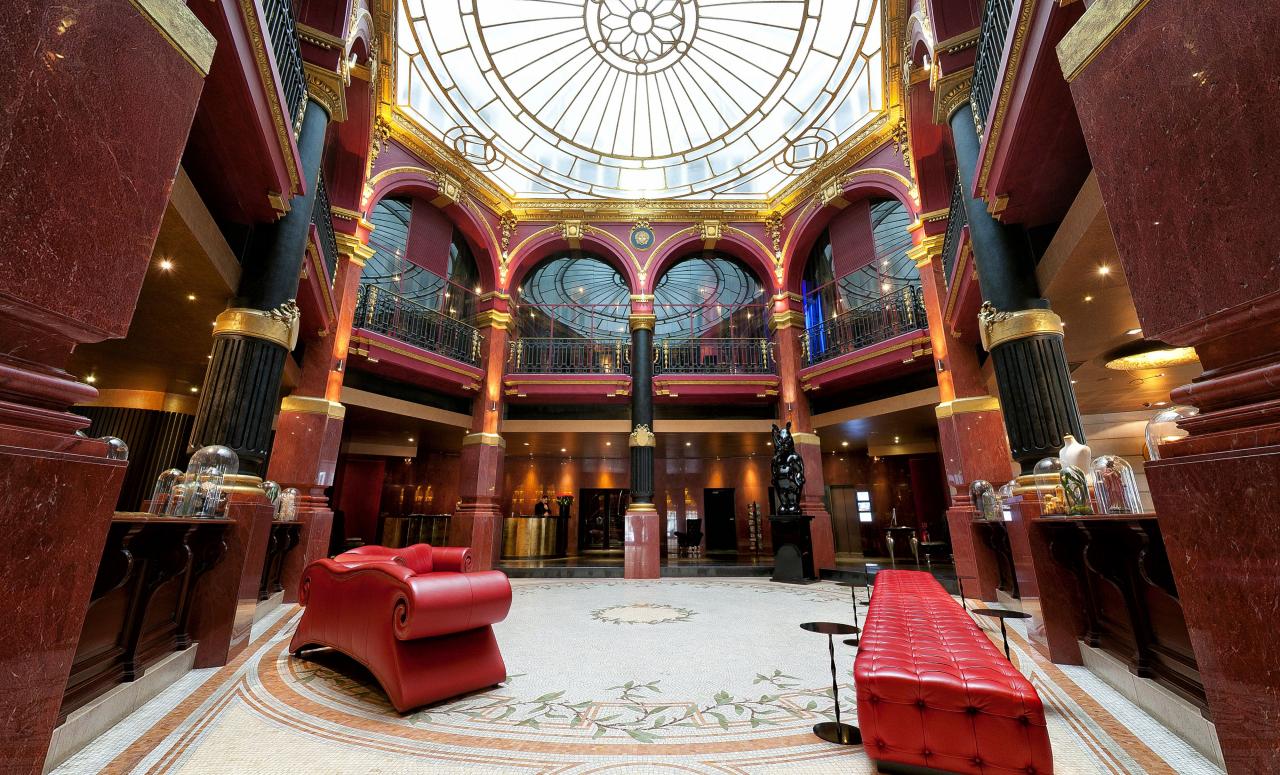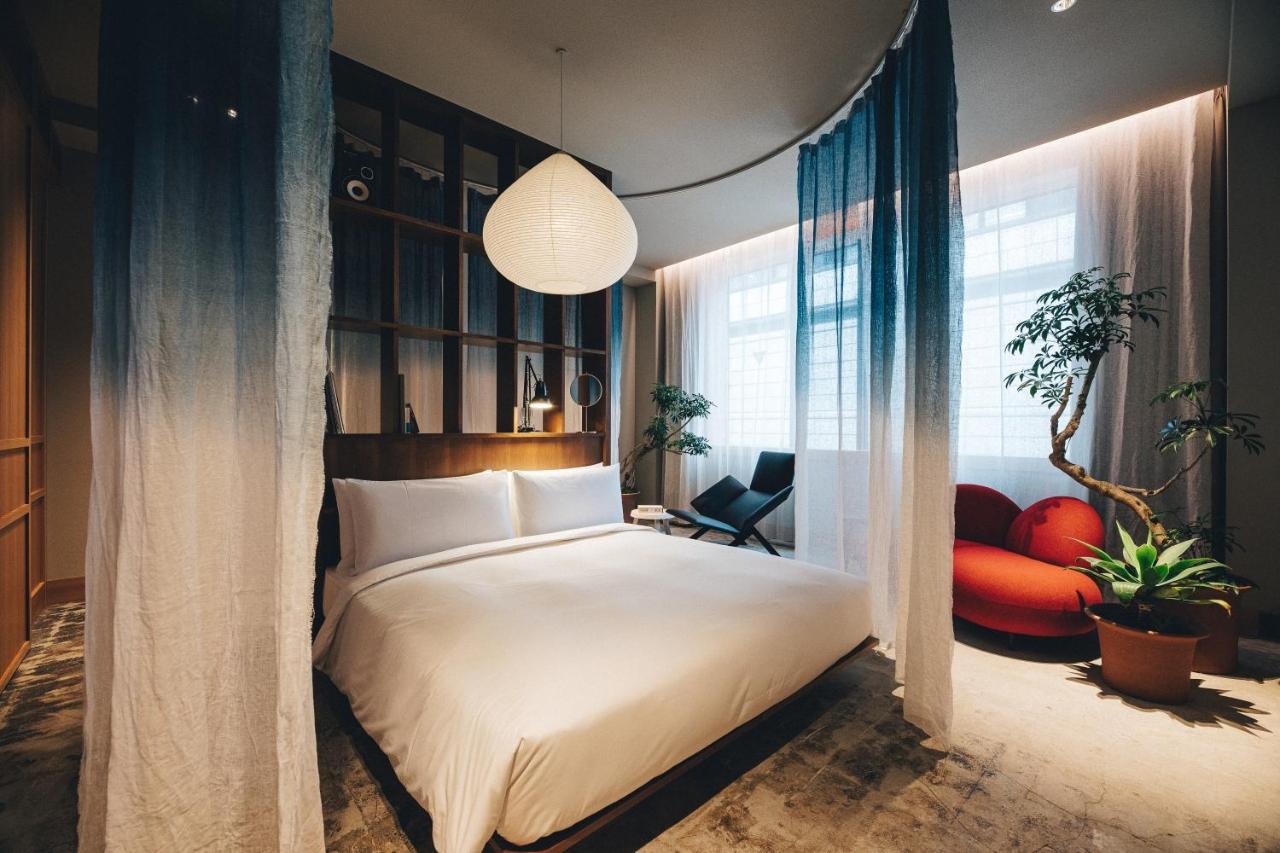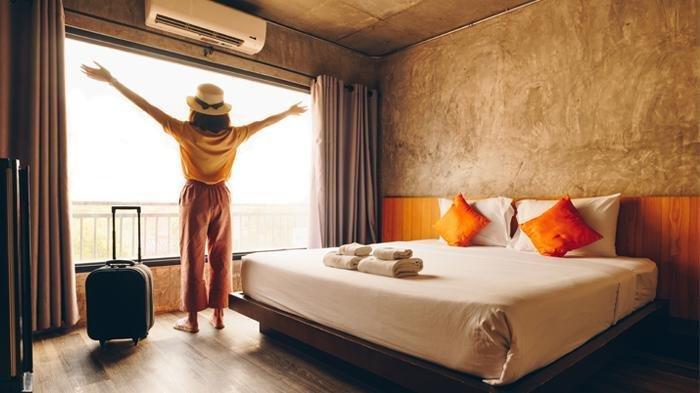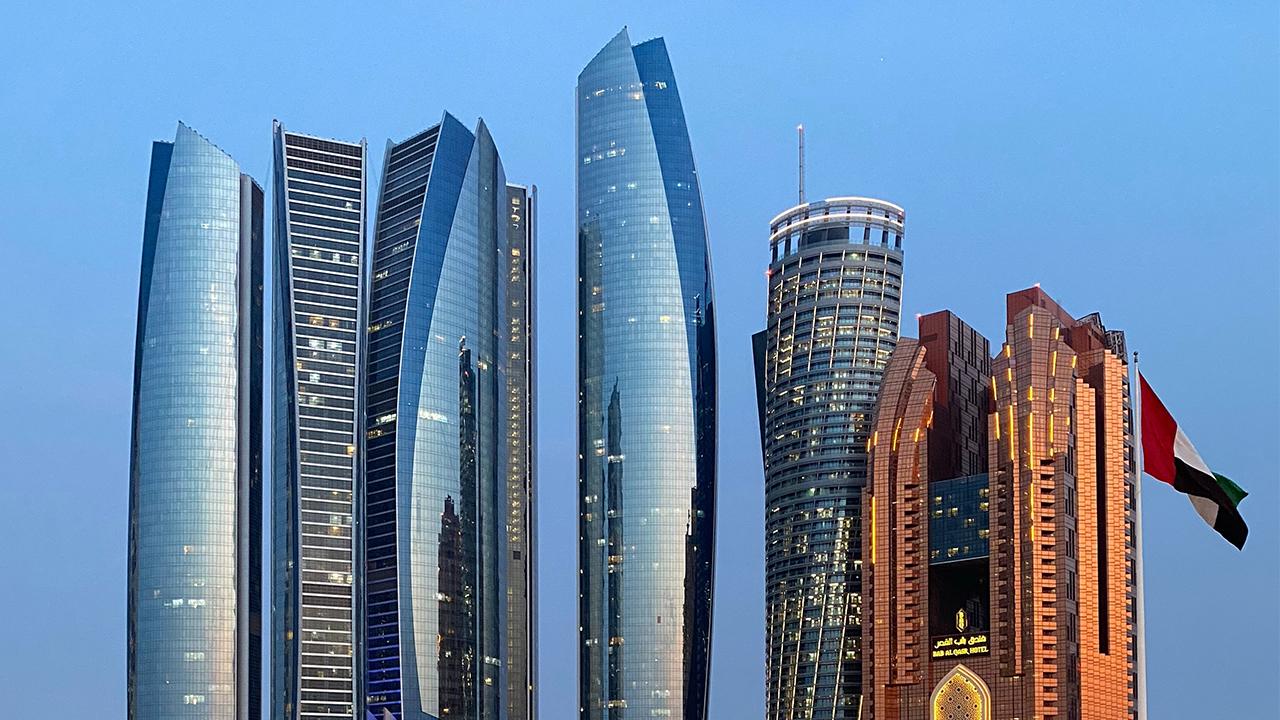In an era of homogenized travel, where chain hotels often blur into a predictable landscape, unique boutique hotels stand as vibrant beacons of individuality and distinction. These intimate establishments offer more than just a place to stay; they provide immersive experiences, often steeped in local culture, history, and bespoke design. This comprehensive article delves into the burgeoning world of boutique hospitality, exploring what sets these captivating properties apart, why they resonate so deeply with discerning travelers, and the key elements that define their enduring allure. It’s a journey into how smaller, more personal accommodations are redefining luxury, authenticity, and the very essence of a memorable stay.
The Essence of Boutique Hospitality

The term “boutique” in the hotel context signifies a distinctive approach to hospitality, prioritizing individuality, personalized service, and a strong sense of place over sheer scale and standardized offerings. It’s not merely about being small, though most boutique hotels are. It’s about a philosophy that permeates every detail, creating an experience that feels handcrafted and thoughtfully curated.
At its core, a unique boutique hotel typically embodies:
A. Distinctive Personality and Theme: Unlike chain hotels designed for broad appeal, boutique hotels often possess a strong, cohesive theme or narrative that influences their design, amenities, and overall ambiance. This could be inspired by local history, a specific artistic movement, a cultural concept, or a visionary owner’s passion. This thematic consistency creates a unique and memorable atmosphere. For example, a hotel might be themed around a famous literary work, a specific era of architecture, or a local artisan craft.
B. Intimate Scale and Exclusivity: Boutique hotels are generally smaller, often ranging from 10 to 100 rooms, which allows for a more intimate atmosphere and a higher staff-to-guest ratio. This smaller scale inherently fosters a sense of exclusivity and privacy, making guests feel like they are part of a select group. It moves away from the impersonal nature of large institutions.
C. Exquisite, Curated Design: Design is paramount in boutique hotels. Every element, from the architecture and interior furnishings to the lighting and artwork, is meticulously chosen to contribute to the hotel’s unique aesthetic and narrative. This often involves bespoke furniture, local art installations, custom textiles, and a keen eye for detail that elevates the guest experience to an art form. The design isn’t merely functional; it’s part of the story.
D. Highly Personalized Service: The smaller size enables staff to offer truly personalized service that anticipates guest needs. Staff often remember names, preferences, and details from previous conversations, making guests feel genuinely seen and valued. This level of attentiveness transforms a stay into a relationship, creating a warm, inviting, and bespoke experience. It’s about proactive hospitality rather than reactive problem-solving.
E. Strong Sense of Place and Local Connection: Boutique hotels strive to immerse guests in the local culture and environment. This can be reflected in the design (using local materials, art), the cuisine (sourcing local ingredients, traditional dishes), and the experiences offered (curated local tours, partnerships with local artisans). They aim to be a gateway to the destination, not an isolated bubble.
F. Innovative Amenities and Unique Offerings: While they might not have sprawling convention centers, boutique hotels often offer highly specialized and innovative amenities that reflect their unique theme or cater to a discerning clientele. This could include a curated art gallery, a bespoke cocktail bar, a conceptual restaurant, a private rooftop garden, or unique wellness programs.
G. Emphasis on Storytelling: Many boutique hotels excel at storytelling. They weave a narrative through their design, their history, their staff interactions, and their local connections, inviting guests to become part of this unique story. This creates a more profound and emotional connection to the property.
H. Independent or Small Chain Ownership: A significant number of boutique hotels are independently owned and operated, allowing for greater creative freedom and flexibility. Even those that are part of small, specialized hotel groups maintain their distinct character and avoid corporate standardization.
Why Travelers Choose Boutique
The appeal of unique boutique hotels stems from a growing desire among travelers for more meaningful, authentic, and memorable experiences.
A. Escape from Predictability
In a world increasingly dominated by global brands and standardized experiences, boutique hotels offer a refreshing antidote to predictability. Travelers are weary of identical rooms, generic lobbies, and mass-market dining found in large chain hotels. Boutique properties promise a unique aesthetic and an element of delightful surprise.
B. Desire for Authenticity and Local Immersion
Modern travelers seek genuine connection with the places they visit. Boutique hotels, with their emphasis on local design, art, cuisine, and community engagement, provide an authentic gateway to the destination’s culture and character. Guests feel they are truly experiencing the essence of the location.
C. The Quest for Personalized Experiences
The impersonal nature of large hotels leaves many longing for recognition and tailored service. Boutique hotels excel at personalization, making guests feel like cherished individuals rather than just a room number. This bespoke attention creates a sense of belonging and elevates the entire stay.
D. Appreciation for Design and Aesthetics
For many, travel is an extension of their lifestyle, which often includes an appreciation for good design, art, and aesthetics. Boutique hotels cater to this sensibility, offering visually stunning environments that are inspirational, thoughtfully crafted, and often Instagram-worthy, appealing to a sense of elevated taste.
E. Intimate and Relaxing Atmosphere
The smaller scale of boutique hotels naturally fosters a more intimate, relaxed, and tranquil atmosphere. This allows guests to truly unwind, disconnect from the bustle of everyday life, and enjoy a sense of peace and privacy often absent in larger, busier establishments.
F. Unique Amenities and Curated Offerings
Beyond standard facilities, boutique hotels often feature niche amenities or experiences that cater to specific interests, such as a hidden speakeasy bar, a rooftop cinema, an artist’s studio, or exclusive local excursions. These unique offerings create memorable moments and differentiate the property.
Elements Defining a Truly Unique Boutique Hotel
While the definition is fluid, several core elements consistently characterize a truly unique and exceptional boutique hotel.
A. Impeccable, Distinctive Design
This is the cornerstone. Every architectural detail, interior design choice, piece of furniture, and artistic element should contribute to a cohesive and striking aesthetic that reflects the hotel’s unique personality and story. This often means bespoke furnishings, custom lighting, locally commissioned art, and a sophisticated color palette that creates a specific mood. The design should be an experience in itself.
B. Unwavering Commitment to Personalized Service
Beyond standard politeness, personalized service involves staff who anticipate guest needs, remember preferences (e.g., favorite coffee, pillow type), offer bespoke recommendations, and go out of their way to create memorable moments. It’s about genuine warmth, intuitive understanding, and proactive care, often facilitated by a high staff-to-guest ratio.
C. Authentic Local Integration and Storytelling
The hotel should feel deeply connected to its location. This is expressed through:
- Local Art and Crafts: Showcasing works by local artists or artisans.
- Locally Sourced Cuisine: Restaurants featuring ingredients from nearby farms or traditional local dishes prepared with a contemporary twist.
- Curated Local Experiences: Offering unique tours or activities led by local experts (e.g., a street art tour, a cooking class with a local chef, a visit to a hidden market).
- Architectural Reflection: Design elements that nod to the building’s history or local architectural styles.The hotel should tell the story of its place.
D. Innovative and Thoughtful Amenities
Amenities should be unique and enhance the specific experience the hotel aims to offer, rather than being generic. This could include:
- A thoughtfully curated library or reading nook.
- A secret garden or rooftop bar with panoramic views.
- A small, specialized spa offering unique treatments.
- Complimentary local treats or artisan coffee in rooms.
- High-tech features that are seamlessly integrated and genuinely useful.Every amenity should feel purposeful and special.
E. Elevated Food and Beverage Program
Dining in a boutique hotel often transcends a typical hotel restaurant. It features:
- Innovative menus crafted by talented chefs, often with a focus on seasonal and local ingredients.
- Unique bar concepts (e.g., a speakeasy, a mixology lab, a wine cellar).
- An intimate ambiance that fosters conversation and enjoyment.
- Exceptional service that complements the culinary experience.It’s about creating a destination dining experience.
Challenges Faced by Unique Boutique Hotels

Despite their allure, boutique hotels face unique challenges in a competitive market.
A. Scalability and Marketing Budget
Unlike large chains with vast marketing budgets and global reach, independent boutique hotels often have limited resources for widespread advertising. They rely heavily on word-of-mouth, social media, and online travel agencies, which can come with high commission rates.
B. Maintaining Uniqueness in Growth
As the boutique concept gains popularity, the challenge for new properties is to genuinely offer something unique without simply replicating existing successful models, thus avoiding homogenization. Maintaining authenticity while expanding is difficult.
C. Operational Costs
While intimate, boutique hotels often have higher staff-to-guest ratios and invest more in bespoke design and high-quality amenities, which can lead to higher operational costs compared to more standardized chain hotels.
D. Dependence on Personalized Service
Their strength in personalized service also presents a vulnerability. A single lapse in service can have a disproportionately negative impact on guest satisfaction and reputation due to high expectations. Consistency is key.
E. Niche Market Appeal
While appealing to discerning travelers, their highly specific themes or designs might not resonate with all segments of the market, potentially limiting their broad appeal. They cater to a niche, which can be a double-edged sword.
The Future of Unique Boutique Hotels
The future for unique boutique hotels is bright, as they are exceptionally well-positioned to meet the evolving demands of modern travelers. They will likely continue to innovate in several key areas.
A. Hyper-Personalization at Scale with AI: Future boutique hotels will leverage AI and data analytics to understand guest preferences even more deeply, delivering hyper-personalized experiences that anticipate needs almost before they are formed. This means not just remembering names but knowing preferred room temperature before arrival, offering bespoke local experiences based on social media activity, and tailoring every interaction.
B. Integrated Experiential Programming: Boutique hotels will further cement their role as experiential hubs. They will offer more deeply integrated and immersive programs, such as artist-in-residence programs, unique culinary workshops with local chefs, exclusive access to cultural events, or curated wellness journeys that are intrinsic to the hotel’s identity and location.
C. Sustainability as an Inherent Value: Being truly unique will increasingly mean being truly sustainable. Future boutique hotels will not just implement green practices but will be designed from the ground up with regenerative principles, contributing positively to their environment and community, becoming living examples of responsible tourism. This will be an expectation, not just a differentiator.
D. The “Phygital” Experience: The seamless blend of physical and digital will become even more sophisticated. Guests will experience physical spaces enhanced by digital layers – perhaps AR-powered art tours within the hotel, interactive digital installations that respond to guest movement, or rooms that adapt their ambiance based on a guest’s digital wellness profile.
E. Community-Centric Ecosystems: Boutique hotels will increasingly function as vital community hubs, fostering strong connections between guests, locals, and local businesses. Their public spaces will become vibrant social and cultural venues, hosting events, co-working spaces, and pop-up retail that encourage interaction and local immersion.
F. Modular Design and Adaptability: To respond to changing travel patterns and guest needs, future boutique hotels may incorporate modular design principles, allowing for easier reconfiguration of spaces (e.g., converting rooms to co-working pods during off-peak seasons) or even rapid deployment of pop-up units for specific events.
G. Emphasis on Wellness and Mental Well-being: Beyond a typical spa, boutique hotels will integrate comprehensive wellness offerings. This could include in-room meditation guides (via smart speakers), partnerships with local mental health practitioners for on-demand support, curated sleep programs, and menus designed for gut health and mood enhancement.
Conclusion
In a world increasingly seeking genuine connections and memorable moments, unique boutique hotels are not just surviving; they are thriving. Their unwavering commitment to distinctive design, personalized service, local integration, and unique storytelling sets them apart, creating experiences that resonate deeply with modern travelers. While challenges persist, the future for these captivating properties is exceptionally promising. As they continue to innovate, embrace sustainability, and leverage technology to enhance rather than replace the human touch, unique boutique hotels will remain at the forefront of redefining luxury and ensuring that every stay is not just a night away, but an unforgettable chapter in a larger travel story. Their enduring charm lies in their authenticity – a quality that will always be in demand.













